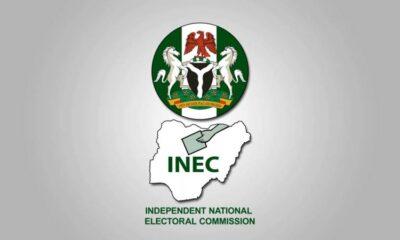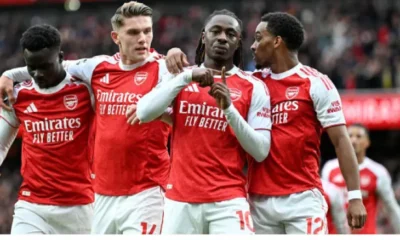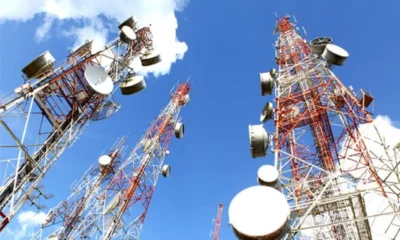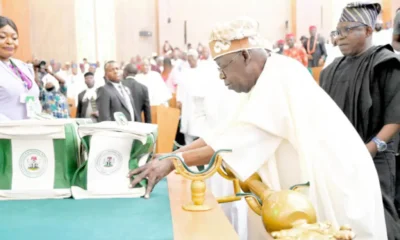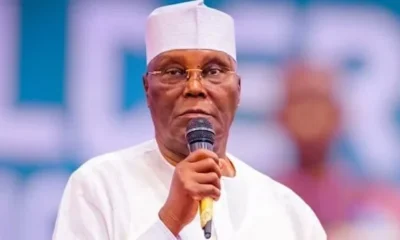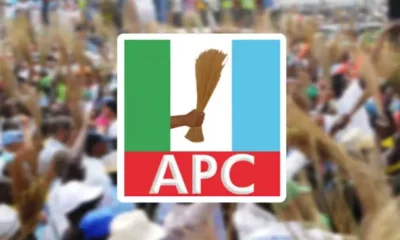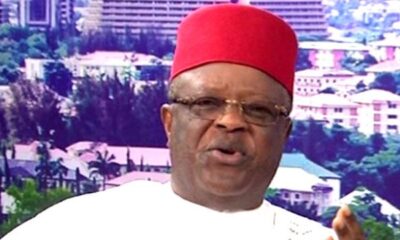Opinion
Democracy, defection and deception
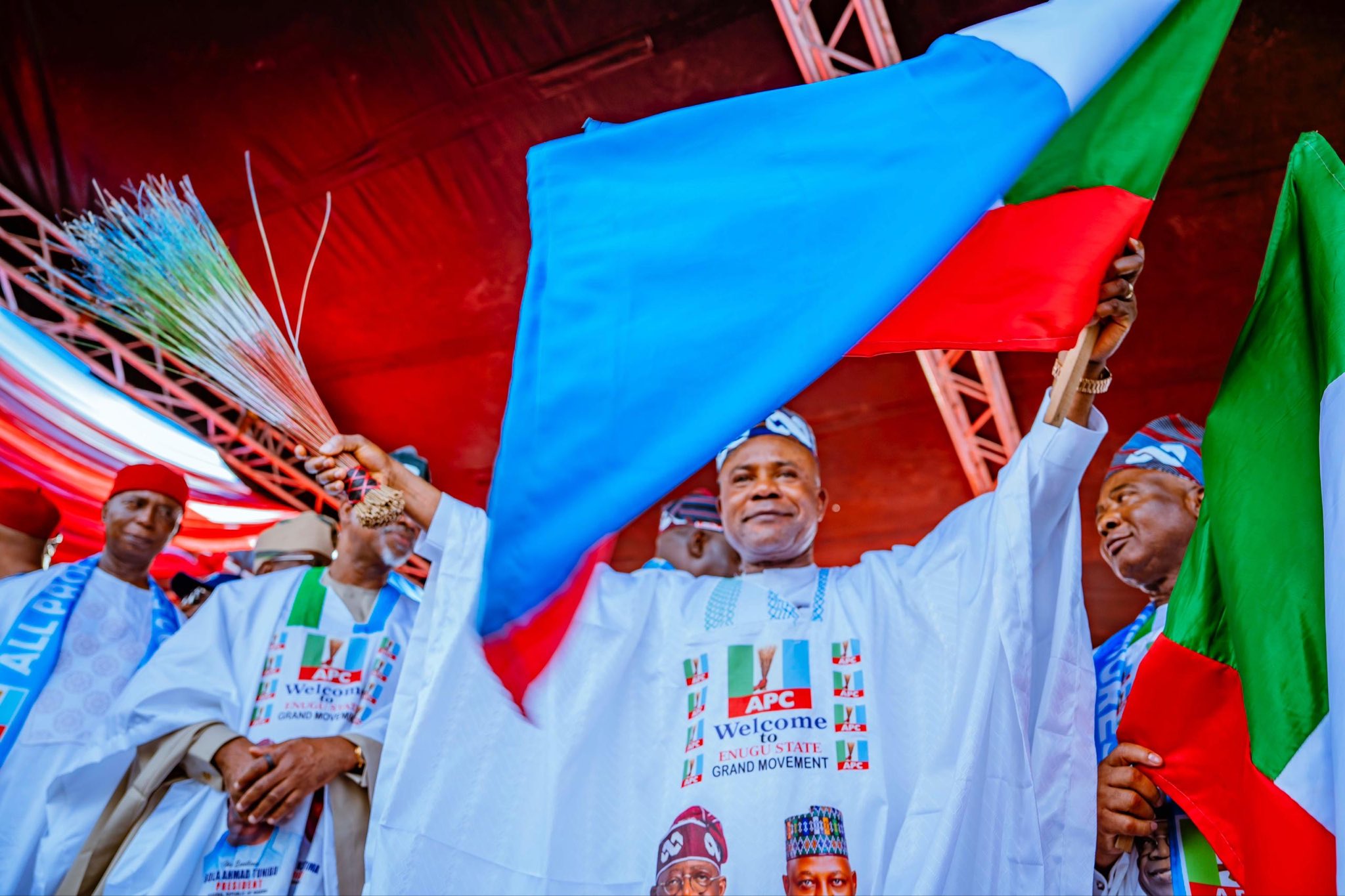
Governor Peter Mbah of Enugu state has just defected from the Peoples Democratic Party (PDP) to the All Progressives Congress (APC). For the first time in the fourth republic, the PDP no longer holds any south-eastern state. By contrast, the PDP held all the five states in 1999, before losing Anambra to the All Progressives Grand Alliance (APGA) in 2006. The APC now controls three south-eastern states while the APGA and the Labour Party (LP) have one each. We were still trying to digest it when Governor Douye Diri of Bayelsa state resigned from the PDP. He appears headed for the APC. There are fresh cries about Nigeria becoming a one-party state and our democracy needing to be saved.
However, any keen follower of Nigerian politics would have discovered long, long ago that defections, alliances and realignments are part of our political culture. There is the tradition of massing behind the ruling party, or the establishment party. There is also the more pronounced tradition of the ruling party doing everything, foul and fair, to maintain its hold on power through alliances and defections. Ahead of every election, it is not unusual for the ruling party and the opposition to restrategise and realign, but the ruling party gets all the flak. The APC is a product of alliances and defections. The African Democratic Congress (ADC) was also from defections and alliances, tagged as a “coalition”.
In 1960, three major parties dominated at the national level: the Northern Peoples Congress (NPC), the National Council for Nigerian Citizens (NCNC), and the Action Group (AG). Whereas the NPC and its allies won 148 of the 312 parliamentary seats, it still needed a coalition with the NCNC and its allies, which had 89 seats, to control business. The marriage between the NPC and the NCNC had hit the rocks by 1964 when another general election was due. The NPC formed a new partnership with smaller parties, called the Nigerian National Alliance (NNA). The NCNC, the AG, and others came together under the United Progressive Grand Alliance (UPGA). The NCNC was the senior partner.
But the NPC alone won 162 seats — more than the 132 it won at Independence — and could form government by itself. Along with its NNA partners, some of whom switched allegiance from rival parties, it gained control of 198 seats. The UPGA boycotted elections in many constituencies in the East, Lagos and Mid-West. When the polls were eventually concluded in March 1965, the UPGA had a grand total of 108 seats. The overall picture was that the NPC became bigger, also helped by UPGA’s boycott which saw many of NNA’s candidates returned unopposed. The UPGA alleged rigging, violence, forgery and bribery, and the resultant violence led to loss of lives and property in the West.
The tradition of ruling parties snatching rival politicians and expanding their bases through alliances and defections continued in the second republic. In 1979, Alhaji Shehu Shagari of the National Party of Nigeria (NPN) won the presidential election by the skin of his teeth and needed an alliance with Dr Nnamdi Azikiwe’s Nigeria Peoples Nigeria (NPP) to gain full control of the national assembly. The NPP got house speakership for its sweat. Governorship was well spread: the NPN had eight states, the Unity Party of Nigeria (UPN) five, and the NPP three, while the Peoples Redemption Party (PRP) and the Great Nigeria Peoples Nigeria (GNPP) got two each. It was very close to my idea of competition.
But as the 1983 elections approached, the NPN became very aggressive, using federal might and patronage to secure defections and expand its base. It claimed governorships in Anambra and Imo from the NPP, Oyo, Bendel and Ondo from the UPN, and Gongola from the GNPP. The tribunals would later upturn Imo in favour of the NPP and Ondo in favour of the UPN. In the presidential election, the NPN claimed a “moon slide” victory. It polled 12 million votes, more than double the 5.7 million of 1979. Chief Obafemi Awolowo/UPN got 7.9 million (up from 4.9 million) and Zik had 3.6 million (up from 2.8 million). The opposition accused the NPN of rigging and voter suppression.
The third republic was annulled, so we would never know if the Social Democratic Party (SDP), which won the presidential election in 1993, would have engineered defections ahead of re-election. With the structure and culture of our politics, maybe. However, when Gen Sani Abacha started his own transition programme in 1997, the United Nigeria Congress Party (UNCP) was seen as the favoured party and most politicians flooded there. In the national assembly elections of April 1998, the UNCP won more than 70 percent of the 469 seats. There was, however, no inauguration as the transition died with Abacha, who had been adopted by all the five parties as their sole presidential candidate
Enter the fourth republic, starting from 1999. Many saw the PDP as the favoured party — the new UNCP, as it were. It was not a surprise that the party won 21 out of the 36 governorship elections, leaving the All Peoples Party (APP) with nine and the Alliance for Democracy (AD) with six. The PDP won 59 of the 109 senate seats and 206 of the 360 seats in the house of reps. That the PDP candidate, Chief Olusegun Obasanjo, was going to win the presidential election was obvious, but Chief Olu Falae, candidate of the AD/APP alliance, tells himself till today that he, and not Obasanjo, won. In other news, defections to the ruling party became a fad and the PDP became a monster.
In the 2003 elections, Obasanjo got re-elected by another “moon slide”, netting 24 million votes, compared to 18.7 million in 1999. In the governorship elections, the PDP claimed the entire south, leaving only Lagos for the AD. It took two of the states held by the re-christened All Nigeria Peoples Party (ANPP) but lost Kano. In all, the PDP had 29 states. The ANPP would later shrink to three states through defections while the Action Congress of Nigeria (ACN) — founded by Asiwaju Bola Tinubu after the AD had been infiltrated by the PDP — snatched a few states from the PDP through the tribunals. Tinubu accused the PDP of leading Nigeria to “one-party dictatorship”. Sounds familiar?
In the end, the PDP became too big for its own good. Implosion was inevitable. The beneficiaries were the opposition parties, which finally came together under the APC flag through defections and realignments. I find it amusing that the ADC is crying hard today that Nigeria is sliding towards “one-party dictatorship”. If I recall, some of ADC’s top leaders were part and parcel of the PDP “one-party dictatorship”. If I recall too, some of APC’s leaders were the ones raising the alarm over “one-party dictatorship” when the PDP was in power. It is now their turn and “one-party dictatorship” is fine! If the ADC wins power in 2027, I expect the “one-party dictatorship” game to continue. It is all politics.
But this begs the question. Why do Nigerian politicians defect to, or align with, ruling parties? This would be a good research topic. From the comfort of my room, however, I would hazard a few guesses. One, the fear of federal might. As Obasanjo demonstrated, state institutions can be used to control and cajole politicians to fall “in line”. In the US, President Donald Trump is openly threatening to withdraw federal funding from New York City if Zohran Mamdani, the Democratic candidate, is elected mayor. Trump is a Republican. He is also threatening to take the 2026 World Cup matches from cities controlled by the Democrats. Federal might and presidential powers could be intoxicating.
Two, the allure of federal patronage. In the first republic, Chief Ladoke Akintola reportedly told Awolowo that he was tired of being in opposition, that Igbo were getting a lot of federal juice by aligning with the north (the NPC). Awo’s preferred route to power was an alliance with northern minorities. Akintola eventually left the AG, founded the Nigerian National Democratic Party (NNDP) and aligned with the north. He was demonised for this, but Obasanjo and Tinubu only became presidents by following the same route. In the second republic, Chief Sam Mbakwe was nicknamed the “crying governor” because he was literally crying openly over the lack of federal projects in Imo.
Three, the need for insurance. Many politicians want to be double sure that they are in the right gathering. They don’t want to be vulnerable. Indeed, when defection becomes a fad, some politicians will have the fear of missing out (FOMO). They want to be in the “happening” circle. Four, intraparty crisis. The PDP, for instance, is in a mess. Nobody wants the courts to nullify their candidature after the elections. Five, many politicians defect when they feel sidelined or stifled in their current parties. In 1983, Chief Akin Omoboriowo, deputy governor of Ondo state, angrily left for the NPN when he felt the UPN was unfairly determined to give the incumbent, Chief Michael Ajasin, the party’s ticket.
Above all, some politicians see political parties as mere vehicles to win or retain power. They cannot be bothered with ideology and allegiance. They can be in the APC in the morning, the PDP at noon and the ADC at bedtime. They are one tribe, one community. We should not be deceived when they mouth democracy and dictatorship. That is the least of their worries. It is all about winning power, to continue from where their rivals stopped. Those who defended PDP’s “one-party dictatorship” not too long ago are now criticising it, and those who criticised it are now the proponents. Those of us watching from the stands should simply smile and silently say: haven’t we seen this before?
AND FOUR OTHER THINGS….
RIP MRS OLANIYONU
I was shocked to the marrow on Tuesday when I was informed of the death of Mrs Aisha Odunayo Olaniyonu, wife of Alhaji Yusuph Olaniyonu, former Sunday editor of THISDAY whom many know as spokesman to former senate president, Dr Bukola Saraki. Sure, we know that life is short and we can exit this world suddenly, but nothing adequately prepares one for the death of someone who woke up looking hale and hearty, who received visitors, who left the living room to attend to one thing or another — only to drop dead. Just like that! Olaniyonu himself survived a terrible ailment last year and his wife played a crucial role in nursing him back to life. My condolences to the family. Painful.
TAINTED TINT
I must necessarily commend Dr Kayode Egbetokun, the inspector-general of police, for listening to the voice of reason by suspending the enforcement of the controversial tinted glass permit. I confess that I did not know there was a law from the military era requiring vehicles to have the permit. I think we can reach a middle ground on this matter: the law should be amended to exclude vehicles with factory-fitted tinted glasses. Those who added the feature after purchase are the ones that need a permit, in my view. I am curious though: what problem are we trying to solve with this tinted glass permit? Will it stop terrorists, bandits, yahoo boys, robbers and kidnappers from getting it? Pointless.
HOPE ALIVE
I was pleasantly surprised the way the Super Eagles of Nigeria tore the Cheetahs of Benin into pieces in the last match of their World Cup qualifying group. They were so clinical, crushing arguably the best team in the group 4-0 — thanks largely to Victor Osimhen’s ruthlessness in front of goal. We still have a long way to go as we now head into a potentially gruelling play-off. If we had not conceded that last-minute equaliser to Zimbabwe in Uyo in March, we would have qualified for the World Cup finals automatically ahead of South Africa. But something still has to be said about the way we woke up at the last minute when all hope looked lost — and the fact that we are still in the race. Half-full.
NO COMMENT
There has been a public outcry over the profiles of some of the convicts granted pardon by President Bola Tinubu. Presidential pardons are usually controversial but some are indefensible. There is something unpardonable about the thresholds and the vetting process. How do you pardon somebody for murder — a crime against the state — because the bereaved father-in-law wanted it? What precedent are we setting? How can a convicted kidnapper who murdered state agents and innocent citizens be granted pardon because he enrolled at the National Open University of Nigeria (NOUN)? Are we telling Evans to get admission into NOUN so that he too can get a pardon? Hmmm.
-

 News24 hours ago
News24 hours agoRigging: INEC RECs risk two-year jail term
-

 Sports24 hours ago
Sports24 hours agoEPL: Arsenal Restore Five-Point Lead After Win In North London Derby
-

 Politics16 hours ago
Politics16 hours ago2027: Real-time results transmission achievable, say telcos
-

 News24 hours ago
News24 hours ago2025 Budget: Capital Without Cash
-

 Politics24 hours ago
Politics24 hours agoFCT Poll: Low turnout shows democracy is being suffocated – Atiku
-

 Politics23 hours ago
Politics23 hours agoBy-Election Wins, Referendum On Tinubu Presidency – Lagos APC
-

 News23 hours ago
News23 hours agoUmahi denies rift with Julius Berger, insists on equal standards
-

 News24 hours ago
News24 hours agoPay Us N100m Or We Attack You – Bandits Tell Kebbi Community



